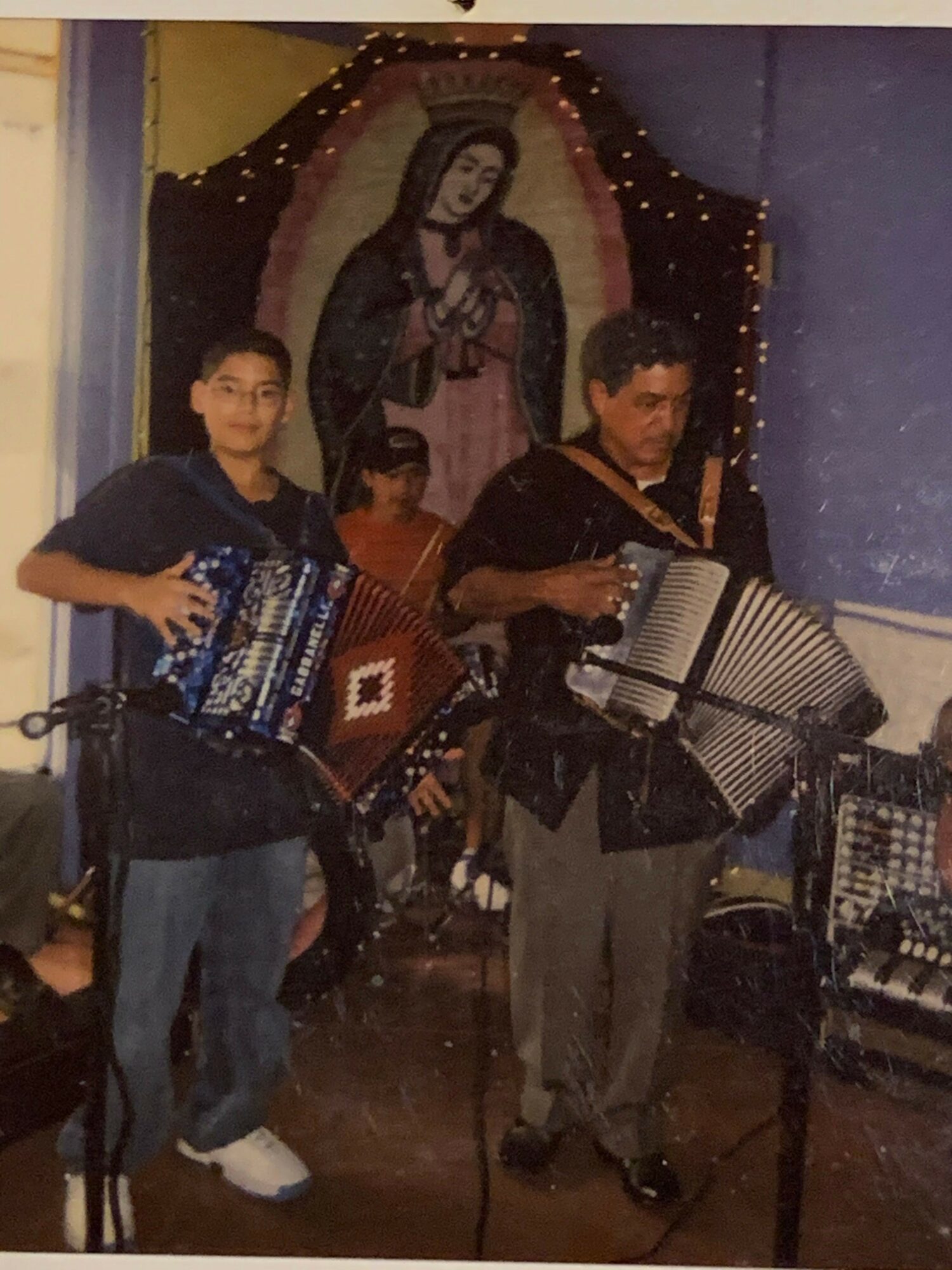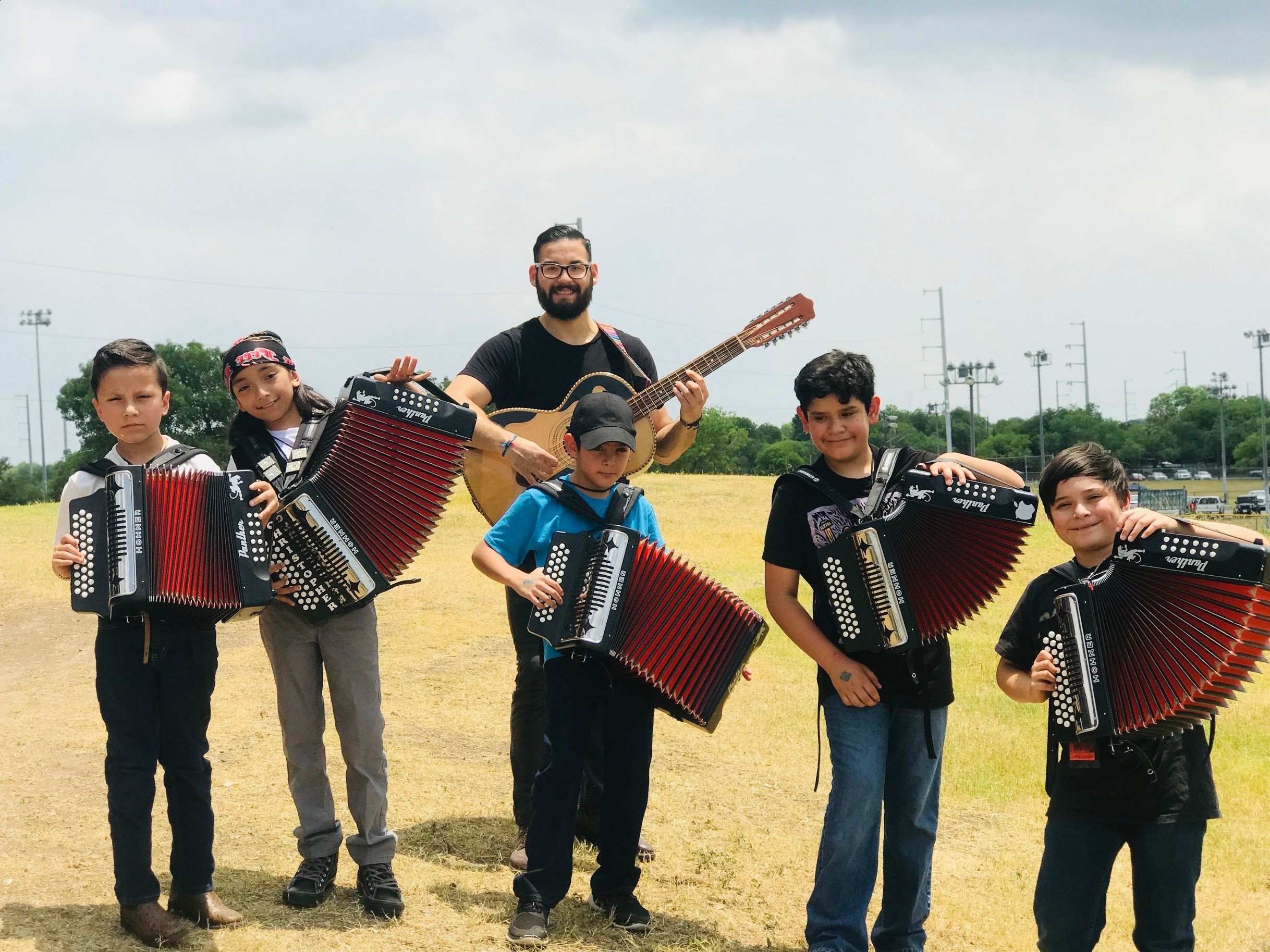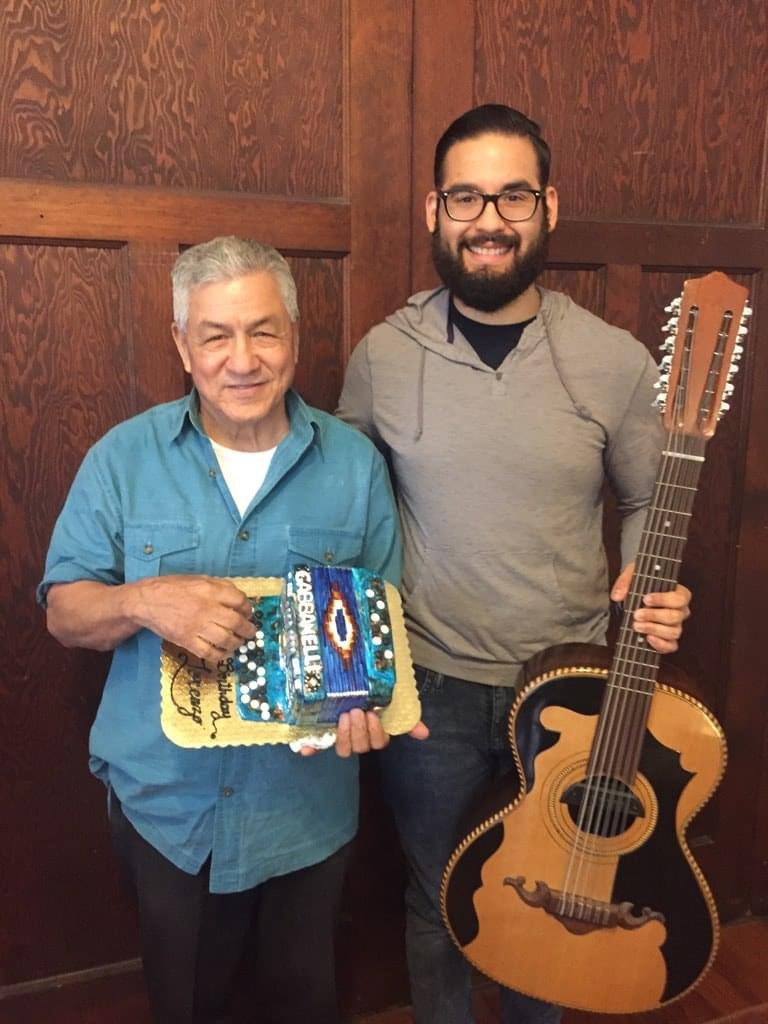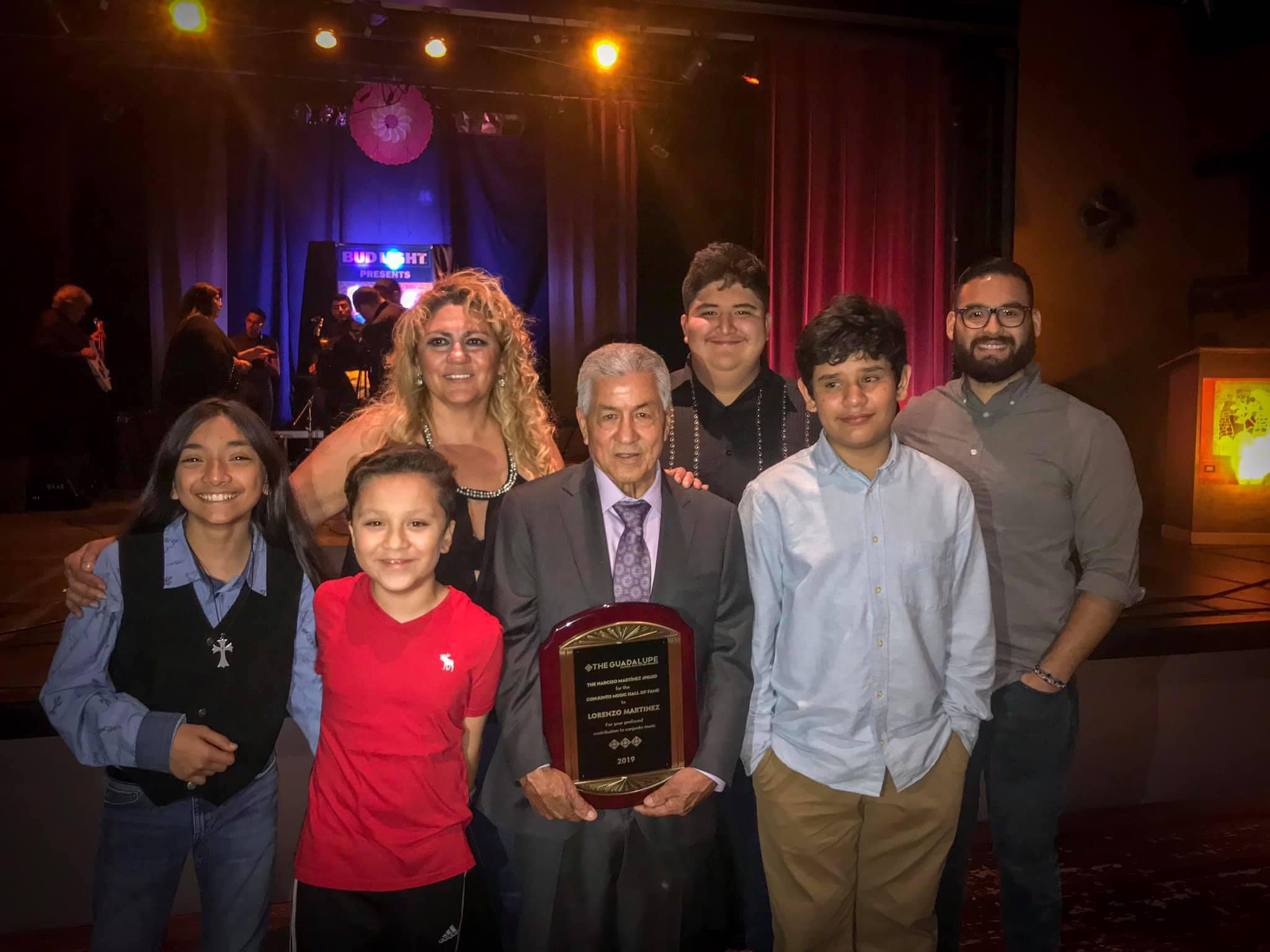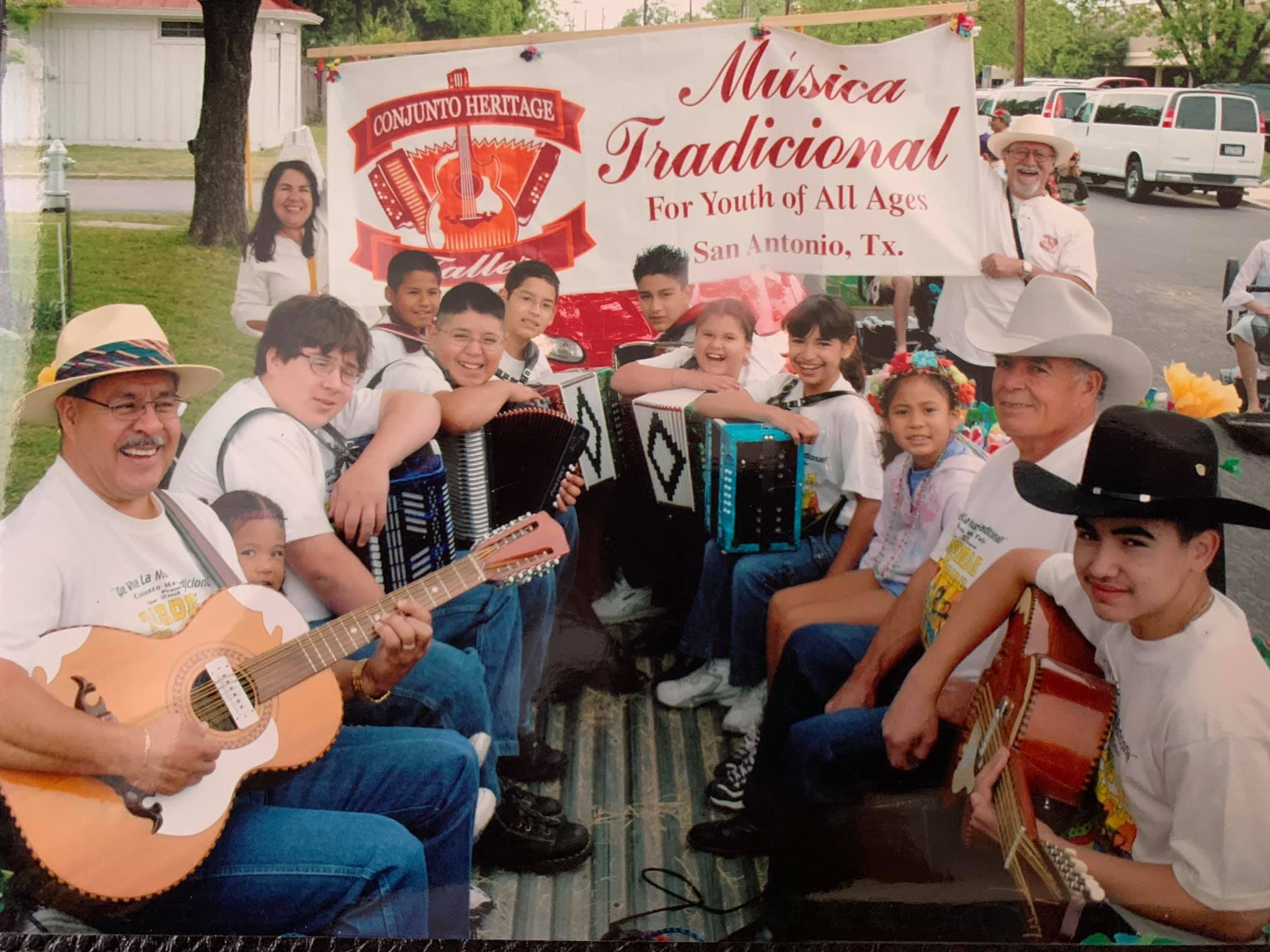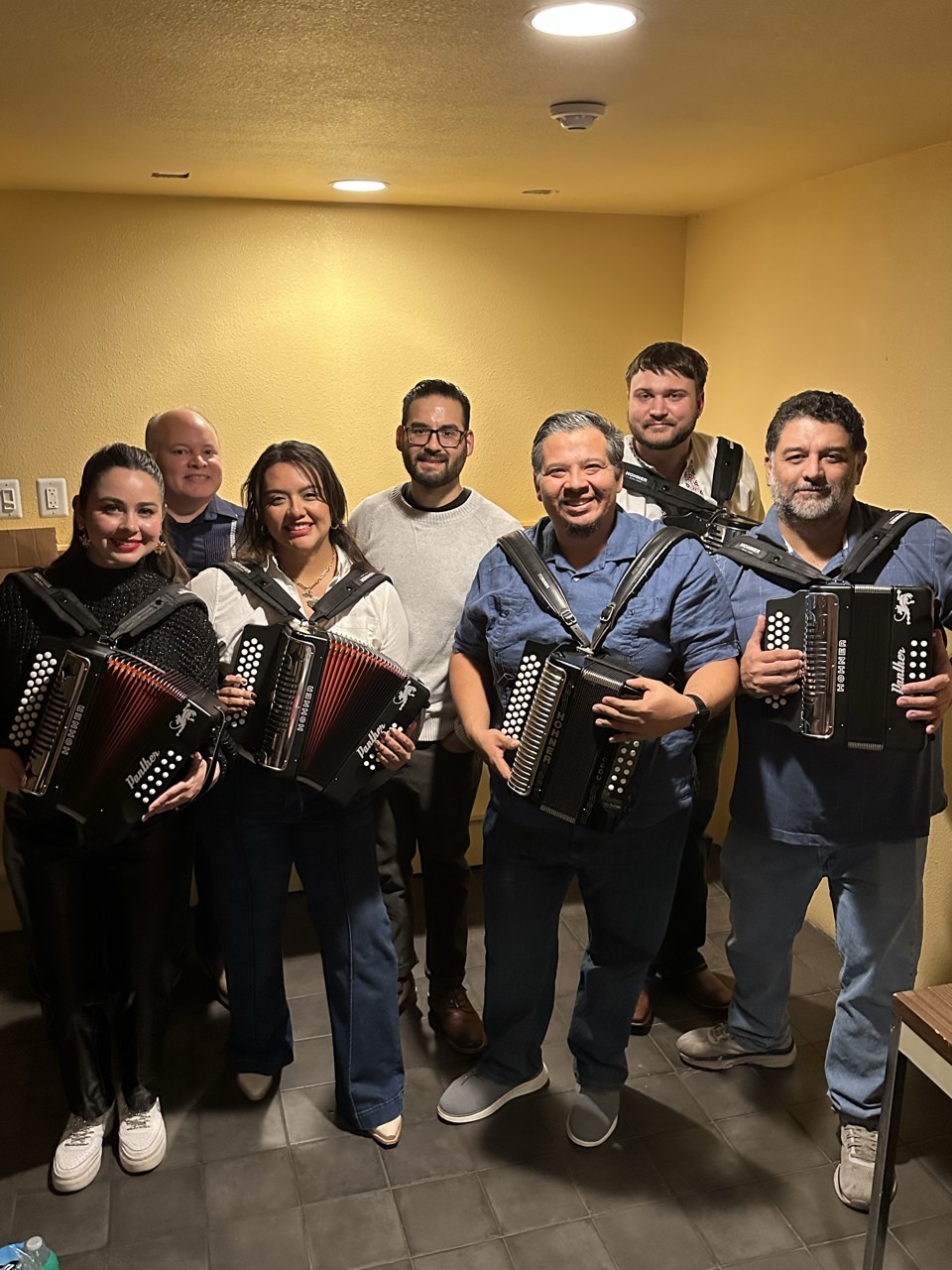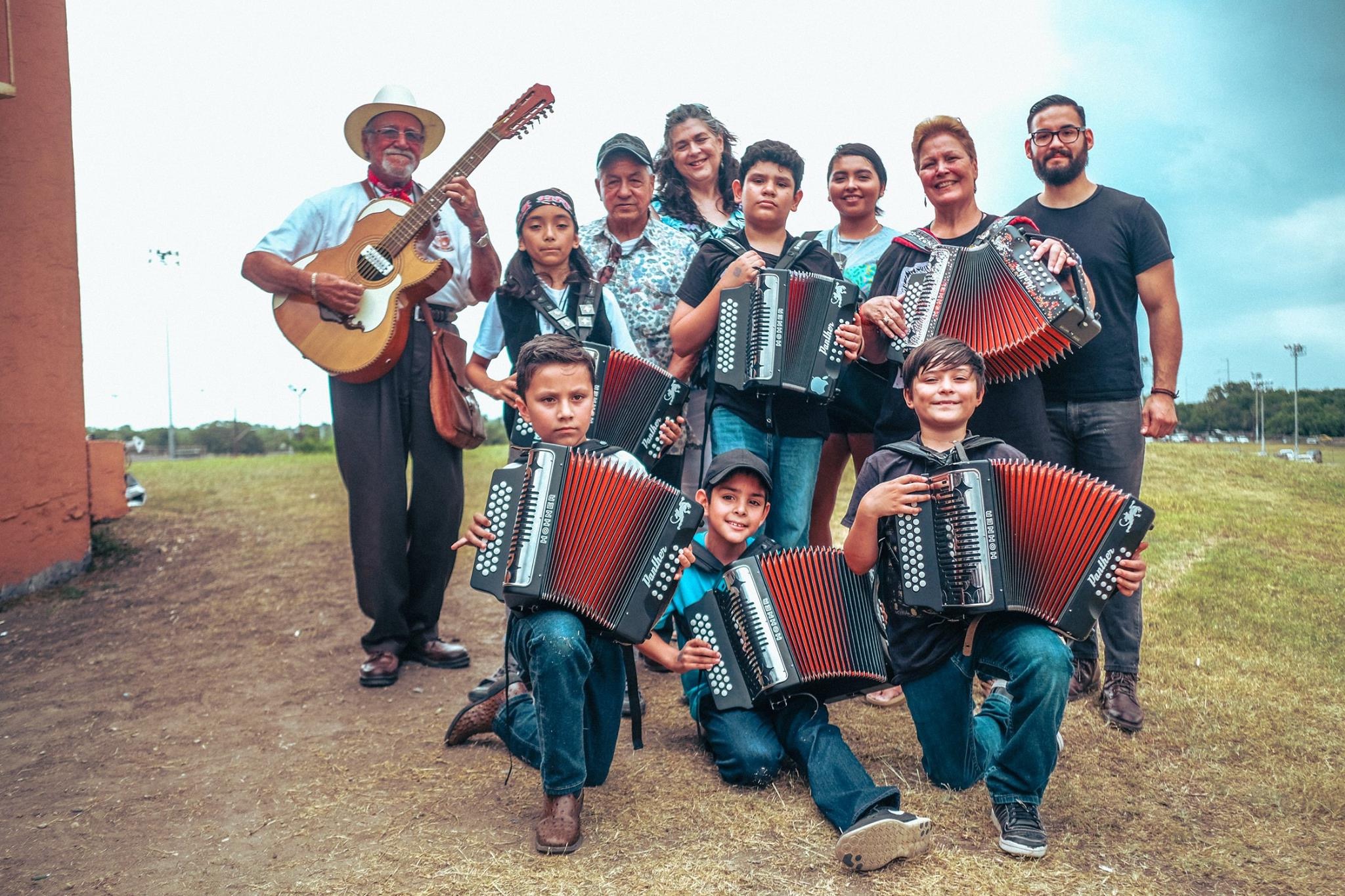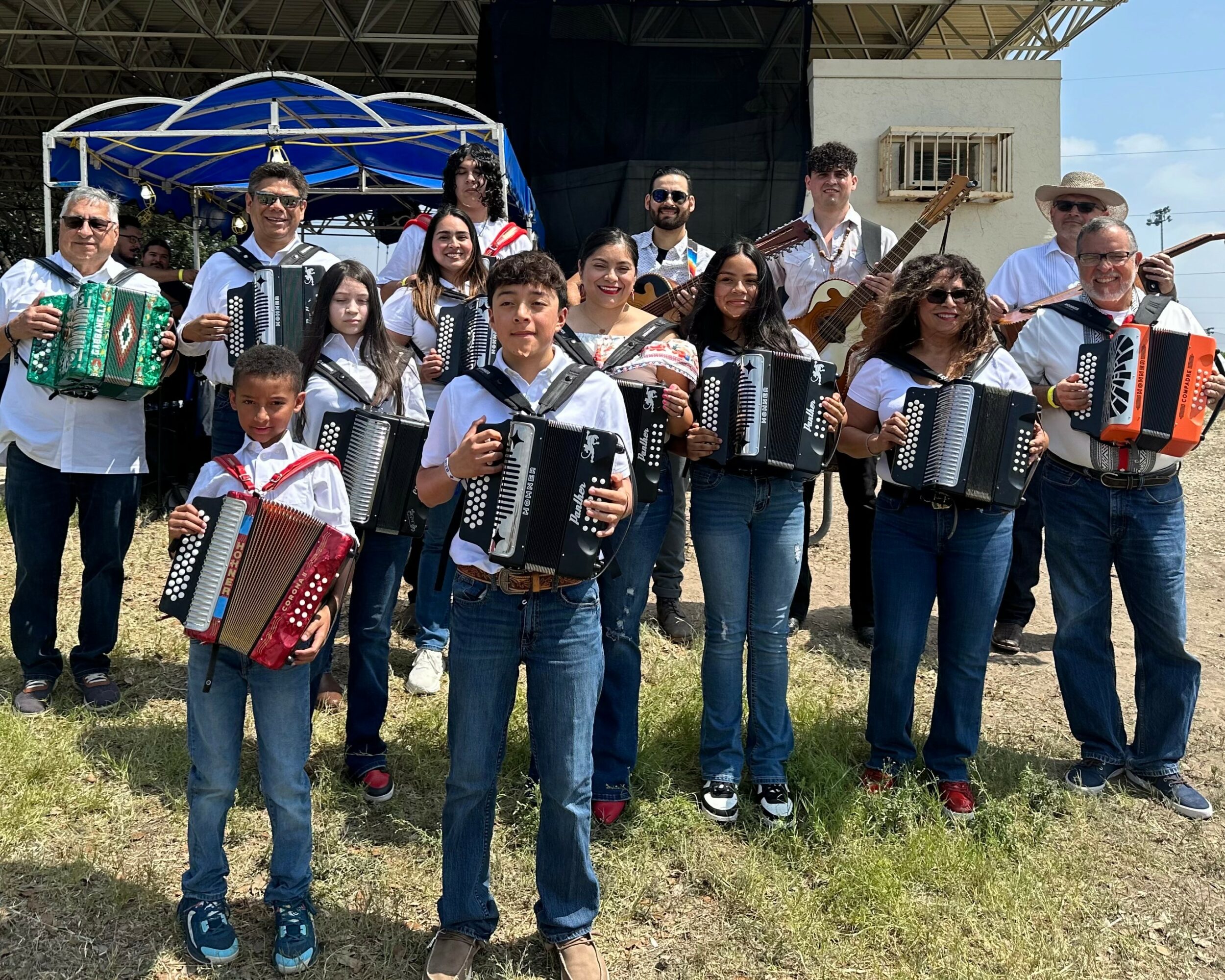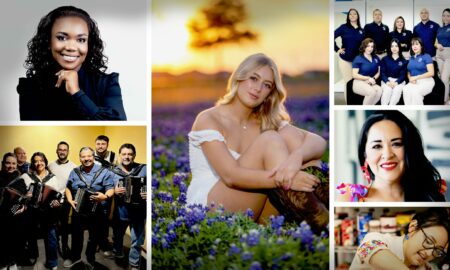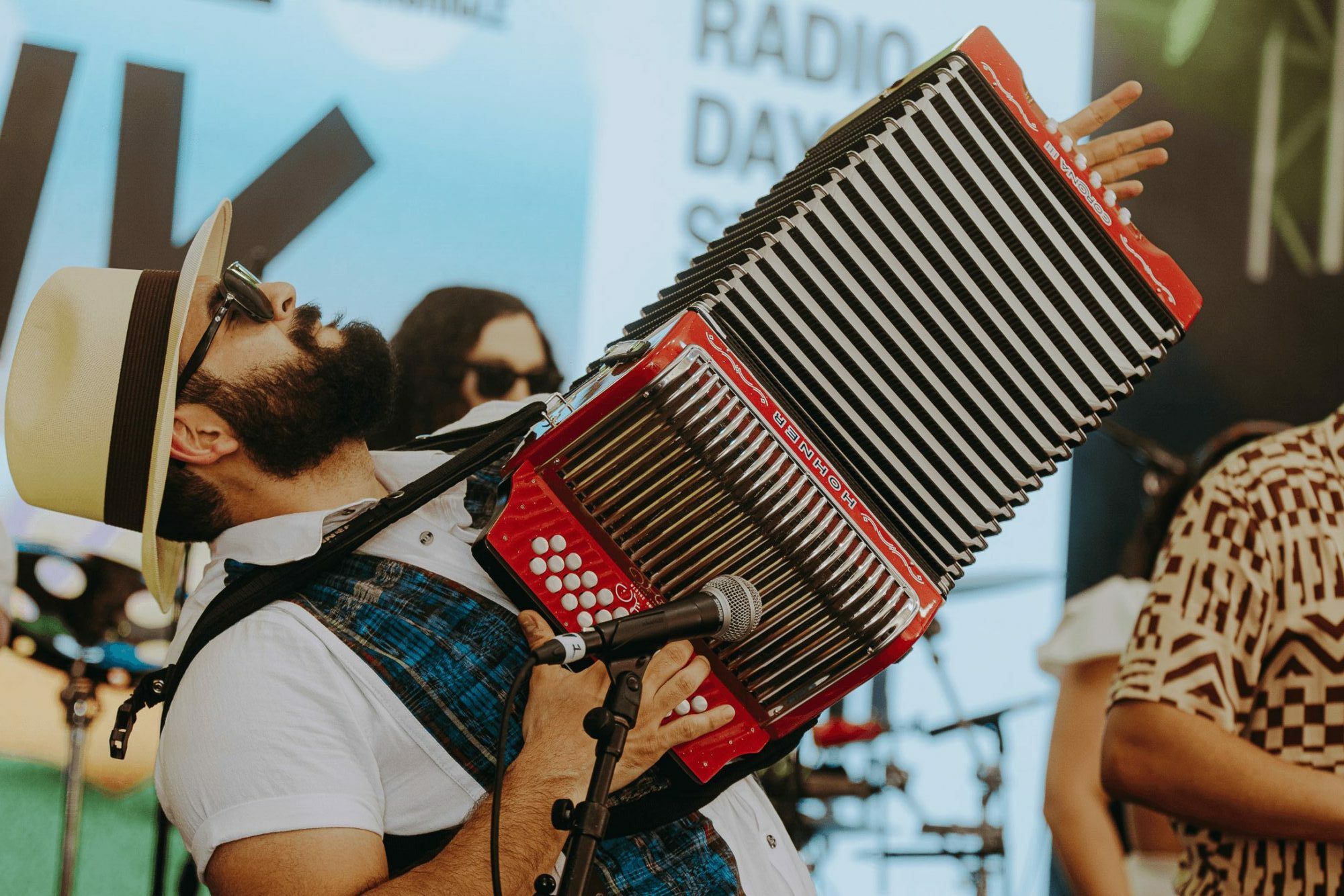

Today we’d like to introduce you to Aaron Salinas.
Hi Aaron, please kick things off for us with an introduction to yourself and your story.
I grew up in San Antonio, raised mostly by my young mother and my grandparents. My early childhood was filled with love, but also with challenges that I didn’t fully understand at the time. Music was always something that moved me, even as a small child — it spoke to a part of me that words couldn’t reach.
When I was about nine years old, I found an old accordion in my grandparents’ home. That discovery would quietly save my life. A few years later, when I was around twelve, my mother gave birth to my younger sister and was diagnosed with severe postpartum depression. Overnight, the strongest person in my world became someone fragile, scared, and battling silent pain. I was young, shy, and unprepared for the emotional weight that entered our home. I didn’t know how to process what was happening — but my accordion gave me a voice when I didn’t have the words. It became my refuge, my therapy, my survival.
I began formal lessons at the Conjunto Heritage Taller, a nonprofit dedicated to preserving traditional conjunto music. The Taller became my second home. Through the hardest years of my life, when home life was unpredictable and heavy, music gave me structure, hope, and strength. I wasn’t just learning songs — I was learning how to endure, how to transform hurt into something beautiful.
Throughout my teens, I performed across San Antonio, taught students, and played with multiple groups — but I never forgot where I came from or the mentors who guided me. I spent over a decade working with the Conjunto Heritage Taller, especially through pivotal times like the COVID-19 pandemic, helping keep the tradition alive when the world stood still.
Today, I continue to teach and share this legacy at the Guadalupe Cultural Arts Center, focusing on conjunto and accordion education. Everything I do honors the tradition and mentorship passed down to me by Lorenzo Martinez, Jesús “Chucho” Perales and Rodolfo “Rudy” Lopez — figures who helped shape my life far beyond music.
In addition to my work in music and cultural preservation, I also built a career as a software and data engineer. I like to think that, in both fields, I am still doing the same thing: organizing, preserving, and building structures that create meaning and connection.
At the core of it all, my story is about healing through music — and about using what saved me to help others find their own voice, too.
Would you say it’s been a smooth road, and if not what are some of the biggest challenges you’ve faced along the way?
It definitely hasn’t been a smooth road. A lot of my life has been shaped by silent struggles — things that most people on the outside never saw.
When I was about twelve years old, my mother, who had always been my rock, was diagnosed with severe postpartum depression after giving birth to my younger sister. That experience completely changed the dynamic at home. There were days filled with fear, confusion, and loneliness. As a child, I didn’t have the emotional tools to understand or cope with it, and there weren’t many people around me who even recognized what was happening.
At the same time, I was always very shy and introverted, and growing up, I struggled with finding a sense of belonging — not just socially, but even within my own household. Music became the only safe space I had. My accordion became my voice when I didn’t know how to speak about what I was feeling.
Later in life, the challenges shifted but didn’t disappear. When I was about nineteen and in college, my mother gave birth to my youngest sibling. Afterward, she fell into a deep cycle of anxiety once again — but this time, she turned to alcohol as a coping mechanism. Navigating my early adulthood while silently dealing with the emotional toll of a parent’s alcoholism was incredibly difficult. It was a different kind of grief, one that lingered for years until she found healing around 2022.
Through it all — from childhood into adulthood — it has been the accordion, conjunto music, and the act of teaching and preserving this cultural tradition that have kept me going. Sharing this music, and seeing the impact it has had on my students, has given me strength during times when I was silently struggling the most. Knowing that young students have looked up to me — even when I was quietly battling my own challenges — has been one of the greatest sources of healing and purpose in my life. It’s through them, and through the music, that I continue to find hope and resilience.
Can you tell our readers more about what you do and what you think sets you apart from others?
Today, my work is split between two passions: preserving traditional conjunto music and culture, and building systems and solutions in the world of technology as a data and AI engineer.
In the musical and cultural space, I specialize in accordion and bajo sexto education and performance, conjunto music and history education, and cultural preservation. I currently teach at the Guadalupe Cultural Arts Center in San Antonio, where I focus on passing down traditional conjunto accordion playing to a new generation. Before that, I spent over a decade working at the Conjunto Heritage Taller as an instructor, program coordinator and cultural advocate — including through the COVID-19 pandemic, when keeping our traditions alive felt more urgent than ever.
I’m also a founding member of Volcán Indie Orquesta Latina, a San Antonio-based band that blends traditional Latin American rhythms with contemporary styles. Since its inception in 2014, Volcán has been dedicated to bringing traditional cultural sounds to a new generation of Latinxs and all music lovers alike. Our music draws inspiration from the traditional sounds of the Caribbean, Mexico, and South America, and blends it with elements of Latin pop and rock.
I’ve done a lot in my 30 years alive, but I’m most proud of carrying forward a legacy that was passed down to me by my mentors — ensuring that youths of all ages have access to their cultural roots. I strive not just to teach them how to play music, but to give them a sense of belonging, pride, and emotional refuge — just like the accordion gave to me during the hardest parts of my life.
In my professional life, I work as a data/AI engineer — and those skills have become a powerful tool for advancing my cultural and educational mission. I use modern technology and innovation to find new ways to teach, preserve, and share conjunto music with wider audiences. Whether it’s building digital resources, improving accessibility, or creating new platforms for education, my professional experience helps me drive my work forward in ways that honor tradition while embracing the future.
What sets me apart is that everything I do, whether in music, education, or technology, is rooted in a deep sense of purpose. I know what it feels like to search for hope in silence, so I’ve made it my life mission to build spaces where people can find connection, healing, and belonging.
Where do you see things going in the next 5-10 years?
When I think about the future of conjunto music and accordion education over the next 5–10 years, I believe we’re at a pivotal point. There’s a growing awareness that if we want to preserve traditional cultural practices, we have to meet younger generations where they are — and today, that’s often through technology.
I see a future where accordion education becomes much more accessible through online platforms, virtual instruction, and digital resources. Technology gives us the ability to connect students who might not have a local teacher, who might not have grown up surrounded by this tradition, but who still feel drawn to the music and the culture. It also allows us to create archives, educational material, and digital learning tools that preserve not just the songs, but the techniques, the stories, and the cultural context behind them.
Personally, I’ve made it a big part of my mission to use my background as an engineer to help push Conjunto and accordion education forward. I’m working toward building new ways to integrate innovation into how we educate, preserve, and perpetuate this music. I believe we can honor the roots of our traditions while still embracing the tools of the future — not to replace the human connection, but to amplify it and make it more accessible.
In a world that’s becoming more digital by the day, cultural preservation has to evolve too. Otherwise, we risk losing it. I see a future where conjunto music is not just surviving, but thriving — because we were willing to honor its soul while finding new ways to share it with the world.
Contact Info:
- Website: https://beacons.ai/anythingfoursalinas
- Instagram: https://www.instagram.com/anythingfoursalinas/
- Facebook: https://www.facebook.com/anythingfoursalinas
- Youtube: https://www.youtube.com/@aarondanielsalinas
- Soundcloud: https://soundcloud.com/aarondsalinas
